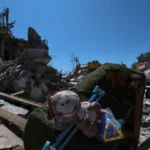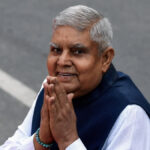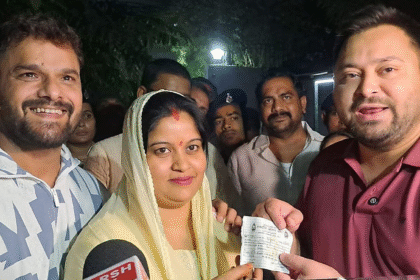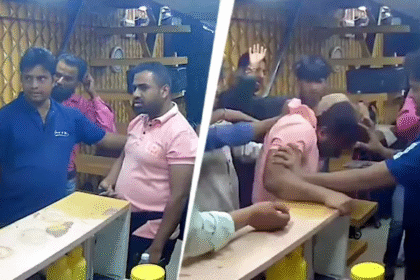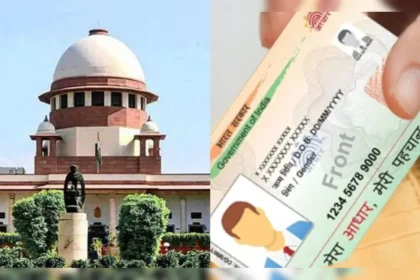Student Activists Allege Torture by Delhi Police Special Cell, Beaten With Leather Whip in Detention
New Delhi: Members of the Delhi-based student organisation Bhagat Singh Chhatra Ekta Manch (BSCEM) and the Forum Against Corporatisation and Militarisation (FACAM) have alleged that at least six individuals associated with them, and one person working with Nazariya Magazine, were detained and assaulted by the Delhi Police’s Special Cell without due process.
The individuals, aged between 19 and 26 years of age, have claimed they were subjected to extreme physical and mental torture between July 9 and July 21, under the guise of “interrogation” by the special cell over the whereabouts of an IAS officer’s daughter.
Timeline of detentions
The police allegedly detained Gurkirat (20), Gaurav (23) and Gaurang (24), who are associated with the BSCEM, on July 9 around 3:30 PM from Ber Sarai in Delhi. They said that they were forcibly detained by police officials in civil clothing, without following any legal procedure.
The Delhi Police’s Special Cell had detained these students and activists from various locations in the capital.
Two days later, on July 11, Ethemam (26) and Lakshita (Badal) (21) of the FACAM were detained in Delhi around 1:00 PM.
Samrat, a professor and social activist, was detained the next day, on July 12, from his home in Haryana.
On July 19, Rudra, who is associated with Nazariya Magazine, was detained at the New Delhi railway station.
Speaking about the detention, BSCEM member Gurkirat said, “On July 9, Gaurav, Gaurang and I were in Ber Sarai, Delhi, collecting some books from Rudra’s house. Around 3:30 PM, three to four men in civil clothing , who were police officers, came and questioned us. “They said, ‘You are terrorists, not students. You have to come with us to the office.’ We countered and asked them to show a warrant and demanded their police ID cards. After this, one of the officers showed his ID card and said, ‘Now you must come.’”
When they resisted, one of the officers slapped both Gaurav and Gaurang five to six times, Gurkirat claimed. “One of the policemen pushed me and threatened me, too. He said, ‘I don’t care that you’re a girl.’ After that, they called a woman constable and forced me into a police vehicle.”
Similarly, describing her detention, Lakshita, a member of the FACAM, said, “I reached Delhi from Ahmedabad around 11 AM on July 11. At 1 PM, some policemen came to my house and forcibly put me and my friend, Ehtemam, into a vehicle. They confiscated our phones, laptops, and iPads, and as soon as we were in the car, they put all the devices on airplane mode. They did not give us any information about where we were being taken.”
She added, “An FIR (First Information Report) has been filed against us, we have not been provided with a copy. When I received a notice (police served her an online notice, she mentioned) for interrogation, it mentioned an FIR number, but I was unaware of the specific allegations mentioned in the FIR against me.”
‘Not taken to police station’
According to the detained activists, they were not taken to any official police station by the Delhi Police. Instead, the students claimed they were held at an unknown location in Delhi’s New Friends Colony.
All seven individuals, who were picked up from different locations on different days, were kept at this place.
Gurkirat and Lakshita claimed that the location was “not a common police station” but a large “bungalow”, which they were told was an office of the Delhi Police’s Special Cell.
Interrogation, physical torture, threats and harassment
Students and activists have alleged that the police interrogation after their detention was a process of harassment and physical and mental torture of them.
To intimidate Gurkirat, Gaurav and Gaurang were stripped naked in front of her and brutally beaten on the soles of their feet with a leather whip, the activists alleged.
Gurkirat said, “They took us to a room where we could see what was happening in the next room through a glass. There, the police officer called my friends Gaurav and Gaurang, stripped them, and made them lie down on a cold steel table. Then, using a leather belt with a wooden handle, the officers repeatedly whipped them on the soles of their feet. They would beat them and ask them to stand up, and when they couldn’t, they would beat them again.”
“This wasn’t for any interrogation process; it was done just to show me a ‘demo’ of what could happen to me. After that, they took me to the same room and beat me in the same way,” she said.
While Gurkirat was not stripped completely, the policewomen , also in civil clothing, tortured her and beat her on the foot with the leather whip. She also alleged that prior to that, the policemen slapped her and pulled her by the hair.
The students and activists, while speaking, claimed that in the end, they were forced to sign “several blank sheets of the paper and false confessions” without even being allowed to read them.
Gaurav, a student at the Delhi School of Journalism, who has now returned to his native, Nawada in Bihar, spoke about his eight-day-long ordeal. He said, “Gurkirat, Gaurang and I were picked up from Ber Sarai on July 9. In the first three days, the police tortured us a lot. They would wake us up at 1:30 or 2:00 am and take us to the interrogation room. There, they would strip us completely naked, make us lie on the floor, and beat us with belts and sticks.”
“On the day of release on July 17, they asked us to sign several documents. Some of them were blank papers. We were being threatened that if we did not sign, they would not release us,” he added.
When asked what the police asked them during the interrogation, four of them (Lakshita, Gaurav, Gurkirat and Ehtamam) said that the initial and most persistent question was about IAS officer Archana Verma’s daughter Valika.
The police were constantly asking, ‘Where is Valika?’.They kept asking questions like, ‘Why did she leave home?’, and whether anyone had helped her “escape”.
Lakshita and Gurkirat claimed that of the seven detainees, Ehtemam faced the most severe and inhuman torture.
Throughout the entire detention, Ehtemam, a lawyer-activist with FACAM who studied at Jamia Millia Islamia, was deliberately and more brutally targeted because of his “Muslim identity”, they alleged.
He was constantly beaten while being subjected to Islamophobic slurs like “Mulla” and “Katwa“, they said. Lakshita claimed that the police also tried to falsely cast her and Ehtemam’s relationship in a “love jihad” angle – a conspiracy theory used by the right-wing groups that falsely accuses Muslim men of duping Hindu (non-Muslim) women with promises of love and marriage to religiously convert them.
What’s the IAS officer and her daughter’s connection with the detentions?
Lakshita and Gurkirat claimed that primary reason they were subjected to sustained torture is a “personal dispute” between a senior bureaucrat IAS officer Archana Verma and her daughter, Valika Verma.
According to some of the detainees, Valika, a 24-year-old law graduate from Jindal University, Haryana, and the editorial member of the Nazariya Magazine, had left her home due to the ideological differences with her mother and was living independently in Delhi’s Ber Sarai.
Gurkirat said, “We do not know where Valika is. She had ideological differences with her mother and left the house. But the police have been after us and have brutally tortured us. During our questioning, they repeatedly asked us where Valika was.”
Lakshita also said that they have still not been provided with a copy of the FIR, whose number was mentioned on the notice she received. She is unaware of the specific allegations mentioned against them.
She said, “An FIR has been filed. I too received an online notice, I have that notice, the one summoning me for an investigation under that FIR. But the police are not giving us the FIR, they are not giving us anything. The police were constantly telling us, ‘If you come to Delhi, we will arrest you.’”
She added that the notice that she received from the police was sent online to her parents’ mobile on July 20.
Parents summoned
Throughout this entire issue, the parents of the detained students have also faced harassment. Both Lakshita and Gurkirat stated that their parents were summoned to Delhi and were forced to sign documents so that their children were released.
Lakshita said, “They made our parents write, and sign it, that if they send us back to Delhi, then police will arrest us. Due to this fear, my parents are not allowing me to speak with anyone and are pressuring me to remain at home.”
The parents of the other students also took their children back home and kept them away from any form of legal or public response.
Ehtemam is currently living in Lucknow with his family after the harrowing detention. Speaking to The Wire, he said: “The police physically and mentally harassed me. They kept asking me during the interrogation where Valika was, which I did not know. They called me ‘Mulla’ and said they would create a ‘love jihad’ angle with my friend Lakshita. They threatened to plant weapons at my house and said they will arrest my parents for arms trafficking.”
He claimed that when the police released him, they did not return his belongings.
He added, “The police took my phone, my wallet, my Bar Association ID card, my Aadhaar card, my PAN card and most importantly, they did not return my flat keys, which they had initially taken from me.”
Amongst the seven detainees, Rudra was the youngest, and only 19 years old. A student at Delhi University’s Zakir Husain College, he was working with Valika for the Nazariya Magazine.
Rudra was the last person to be detained by the police, on July 19, at the New Delhi railway station, and was taken after some of the initially detained individuals had already been released.
From the time the student activists were detained on July 9 until July 18, Nazariya Magazine has been posting calls for their release on their social media handles on Facebook, X, Instagram, as well as on its website. However, the last post on their Facebook page was on July 18.
Following Rudra’s detention on July 19, there have been no further posts on any of the platforms.
The detained students were released in stages between July 16 and July 21. After eight days of detention, Gurkirat was the first to be released on the night of July 16. Only after her release did the outside world receive concrete information about the case and the detention of the other students.
The following day, on July 17, Lakshita, Gaurav and Gaurang were released. Ehtemam, who had faced the most severe physical and mental torture, was released on July 18. Samrat, who was arrested in Haryana, was released on July 19. Finally, Rudra, who had been detained last, was released on July 21.
This is not the first time that the students of the BSCEM had been detained.
In May last year, during the Lok Sabha elections, BSCEM had made wall paintings in Delhi, calling for an election boycott. Two female students of the organisation, Lakshita and Uttara, were detained by the police while leaving their college after an exam.
A few months ago, the students associated with BSCEM alleged that after a wall painting in JNU depicting atrocities in Bastar, four members – Gaurav, Gaurang, Kiran and Rahul – were illegally detained for 15 hours at the Vasant Vihar police station, Delhi, where they were also allegedly beaten.
Also Read: Russian Airstrike Kills Child in Ukraine as Civilian Casualties Rise Amid Ongoing War


